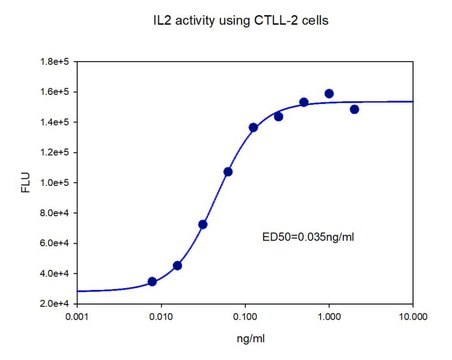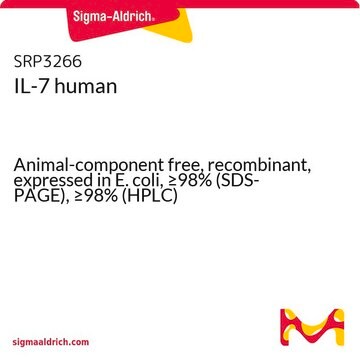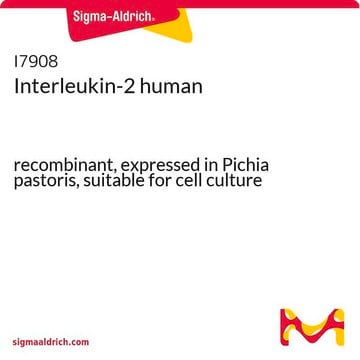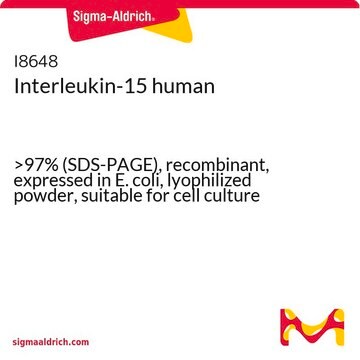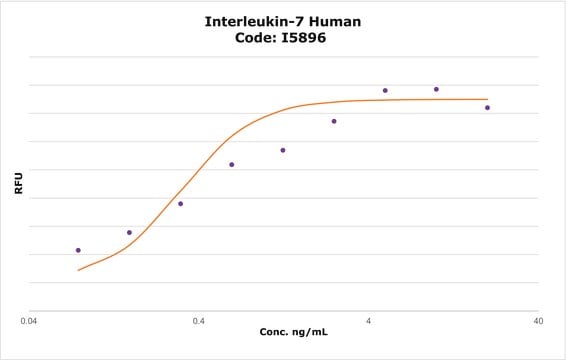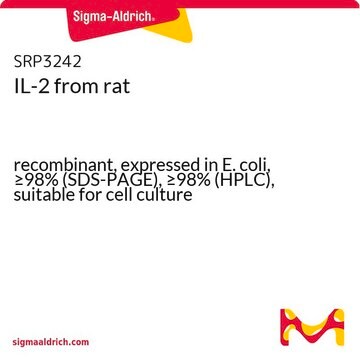H7041
IL-2 human
≥98% (SDS-PAGE), recombinant, expressed in HEK 293 cells, lyophilized powder, suitable for cell culture
Synonym(s):
Interleukin-2, T-cell growth factor
Select a Size
Select a Size
About This Item
Recommended Products
Product Name
Interleukin-2 human, IL-2, recombinant, expressed in HEK 293 cells, suitable for cell culture, endotoxin tested
biological source
human
Quality Level
recombinant
expressed in HEK 293 cells
form
lyophilized powder
potency
≤5.0 ng/mL ED50
quality
endotoxin tested
mol wt
monomer 15 kDa (glycosylated)
packaging
pkg of 5X10 μg
pkg of 10 μg
pkg of 100 μg
technique(s)
cell culture | mammalian: suitable
Looking for similar products? Visit Product Comparison Guide
General description
Application
Biochem/physiol Actions
Preparation Note
Analysis Note
Storage Class
11 - Combustible Solids
wgk_germany
WGK 2
flash_point_f
Not applicable
flash_point_c
Not applicable
Choose from one of the most recent versions:
Certificates of Analysis (COA)
Don't see the Right Version?
If you require a particular version, you can look up a specific certificate by the Lot or Batch number.
Already Own This Product?
Find documentation for the products that you have recently purchased in the Document Library.
Customers Also Viewed
Articles
Discover answers to your frequently asked questions about animal component-free, xenobiotic-free, and chemically defined media and reagents for cell culture.
Our team of scientists has experience in all areas of research including Life Science, Material Science, Chemical Synthesis, Chromatography, Analytical and many others.
Contact Technical Service

